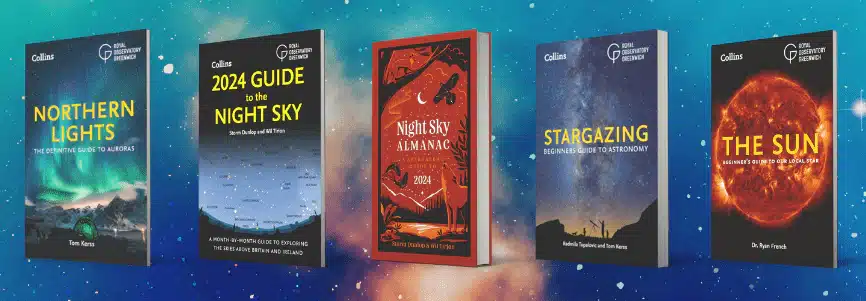Astronomy is the study of celestial objects, space, and the universe as a whole. It’s a science that inspires awe and curiosity, helping us understand the cosmos and our place within it. Books on astronomy are a gateway to the universe’s wonders. They are for aspiring astronomers, casual stargazers, and anyone fascinated by the stars. This article explores the best astronomy books. They cover topics from beginner guides to advanced concepts.
Why Read Astronomical Books?
Best Astronomical Books are more than just texts; they are journeys through time and space. These books allow readers to:
- Understand fundamental concepts about the universe with clarity and depth. While exploring scientific ideas, Best ASL Books can help you bridge the gap in communication, providing insight into the Deaf community and enhancing your learning experience in multiple areas.
- Learn the history of astronomical discoveries.
- Explore advanced topics such as black holes, dark matter, and exoplanets.
- Develop practical stargazing skills.
- Foster a deeper appreciation for the cosmos.
Best Astronomical Books
Here is a list of the best astronomical books that cater to all levels of interest and expertise:
- “Cosmos” by Carl Sagan
- “Astrophysics for People in a Hurry” by Neil deGrasse Tyson
- “A Brief History of Time” by Stephen Hawking
- “NightWatch: A Practical Guide to Viewing the Universe” by Terence Dickinson
- “The Fabric of the Cosmos” by Brian Greene
- “Turn Left at Orion” by Guy Consolmagno and Dan M. Davis
- “The Sky Atlas” by Edward Brooke-Hitching
- “Welcome to the Universe” by Neil deGrasse Tyson, Michael Strauss, and J. Richard Gott
- “Death by Black Hole” by Neil deGrasse Tyson
- “The Stars: A New Way to See Them” by H.A. Rey
“Cosmos” by Carl Sagan
- Overview: Carl Sagan’s iconic book connects science and philosophy. It explores humanity’s place in the universe.
- Highlights: It covers the origin of life, galaxy evolution, and alien intelligence.
- Why It Stands Out: “Cosmos” is poetic and easy to read. It inspires readers to think critically and dream big.
“Astrophysics for People in a Hurry” by Neil deGrasse Tyson
- Overview: This book offers a brief but complete intro to astrophysics. It is for readers with little time.
- Tyson discusses the Big Bang, dark energy, and quantum mechanics. He does it in an engaging, simplified way.
- Why It Stands Out: It’s brief and clear. So, it’s perfect for busy people who want to learn about the universe.
“A Brief History of Time” by Stephen Hawking
- Overview: Stephen Hawking explores complex ideas like black holes, time, and the universe’s origins.
- Highlights: The book presents groundbreaking theories about space and time. It is both approachable and profound.
- Why It Stands Out: It’s a modern classic. It challenges readers to think beyond conventional boundaries.
“NightWatch: A Practical Guide to Viewing the Universe” by Terence Dickinson
- Overview: This practical guide helps amateur astronomers and stargazers navigate the night sky.
- It has star charts, telescope tips, and info on celestial events.
- Why It Stands Out: Its hands-on approach is a must for stargazers.
“The Fabric of the Cosmos” by Brian Greene
- Overview: Brian Greene explores the nature of space and time. He examines string theory and the multiverse.
- Highlights: The book combines storytelling with rigorous science to explain abstract ideas.
- Why It Stands Out: Readers love this book. It simplifies complex topics. They are intrigued by the fabric of reality.
“Turn Left at Orion” by Guy Consolmagno and Dan M. Davis
- Overview: This book is for backyard astronomers. It focuses on using small telescopes to observe celestial objects.
- It has detailed illustrations and tips for observing planets, stars, and deep-sky objects.
- Why It Stands Out: It’s beginner-friendly. So, it’s a staple for amateur astronomers.
“The Sky Atlas” by Edward Brooke-Hitching
- Overview: This beautifully illustrated book chronicles humanity’s fascination with mapping the skies.
- Highlights: It showcases historical star maps, celestial charts, and stories of early astronomers.
- Why It Stands Out: Its beauty and history make it a gem for astronomy fans.
“Welcome to the Universe” by Neil deGrasse Tyson, Michael Strauss, and J. Richard Gott
- Overview: This comprehensive guide introduces readers to the wonders of astrophysics and cosmology.
- Highlights: The book covers a wide range of topics, from the life cycle of stars to the vastness of the cosmos.
- Why It Stands Out: Its format and expert authorship make it a top resource for the curious.
“Death by Black Hole” by Neil deGrasse Tyson
- Tyson uses humor and science to explore black holes, supernovae, and the universe’s end.
- Highlights: The book’s essays are both fun and informative. They offer unique views on the cosmos.
- Why It Stands Out: Its witty, conversational tone makes complex topics fun to read.
“The Stars: A New Way to See Them” by H.A. Rey
- Overview: This classic guide reimagines constellations to make them easier to identify.
- Highlights: It includes updated star charts and tips for observing the night sky.
- Why It Stands Out: Its new take on constellations makes it a timeless resource for stargazers of all ages.
Choosing the Right Astronomical Book
When selecting an astronomical book, consider the following factors:
- Expertise Level: Beginners may prefer “Astrophysics for People in a Hurry”. Advanced readers might enjoy “The Fabric of the Cosmos”.
- Purpose: For night sky observation, use practical guides like “NightWatch” or “Turn Left at Orion.”
- Format: Some books focus on theoretical concepts, while others offer hands-on guidance. Choose one that aligns with your interests.
- Visual Appeal: “The Sky Atlas” is perfect for readers who love stunning art and history.
FAQs about Astronomical Books
What are the best books for beginner astronomers?
Beginners should read accessible books for guidance. Try “Cosmos” by Carl Sagan or “NightWatch” by Terence Dickinson.
Are these books suitable for children?
Yes, “The Stars” by H.A. Rey is great for kids and beginners. It has simple explanations and engaging illustrations.
Can I learn to use a telescope from these books?
Absolutely! Guides like “Turn Left at Orion” and “NightWatch” have detailed instructions.
Are there books for advanced astronomy enthusiasts?
Yes, advanced readers can explore complex topics in books like “A Brief History of Time” and “The Fabric of the Cosmos.”
Conclusion
Astronomy books unlock a universe of knowledge. They spark curiosity and wonder about the cosmos. The books above meet diverse interests and skill levels. They range from practical stargazing guides to theories of space-time. These books will inspire and educate you. They will help you explore the universe, whether you’re stargazing with a telescope or diving into black holes.

